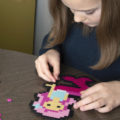It was my husband’s turn to drive. We were on our way back from mountain biking in Duluth, and our two sons were conked out in the backseat.
As quiet settled over the car, I flicked on my phone to The New York Times, pinging out the headline Mothers Defend Sons Accused of Sexual Assault.
The mothers had sons whose lives had been turned upside down by sexual assault accusations.
They didn’t believe their sons were falsely accused, but rather wrongly accused.
The nuances were fuzzy. One mother asserted that the accusing woman’s experience with her son may have been “stupid” and “embarrassing,” but it wasn’t assault.
Another pointed to her son’s total respect for women: “We don’t need to teach our sons not to rape.”
I wasn’t sure if she meant “we as a society” or her and her husband specifically. Regardless, it was a stunning statement, both in meaning — and in absoluteness.
Of course, I’ve explicitly taught my sons about nutrition, throwing a baseball, washing dishes and ways to be a good friend.
But how not to rape? Surely, values of love, family and responsibility make this black-and-white issue crystal clear?
But what about the sea of inappropriate, unwanted sexual interactions I had waded through year after year just to get to class, go to work, walk down the street, drink coffee and, yes, even play with my kids at the neighborhood park?
Then there were my friends who had been raped. None of their stories involved a stranger. She knew the guy. Studied with him. Barbecued with him.
It was fun, until it wasn’t. No one ever reported it.
Maybe we DO need to be more explicit?
I thought of my preparations in sending the backseat sleepers off to college. We’ve talked about finding and cultivating interests, delaying gratification, saving.
Would I have to include the standard-issue warning about women who might be ready to hurl sexual-assault accusations?
What about my friends with daughters? They’ll no doubt give the same warnings every woman before them received: Watch out for uncontrollable men lurking, ready to pounce. Stay in a group.
Men fear women. Women fear men. Are our sexual interactions a lost cause, sexual assault a given? Are our babes doomed to live out the age-old battle of the sexes? Or is it possible to rewrite our scripts?
As my good friends say frequently, “There’s got to be a better way.”
I decided to ask the experts, taking comfort that S-E-X and college were still in the not-quite-there-yet category for my boys.
Well, that notion, it turns out, was a self-protecting, denial bubble that promptly burst on contact.
I spoke with Janna Dickenson, PhD, a Doug Braun-Harvey Postdoctoral Fellow with a focus on compulsive sexual behavior at the Program in Human Sexuality at the University of Minnesota, and Deborah Roffman, a K-12 sexuality educator, consultant and author.
Never too early
Here’s the bad news: Despite parents’ best efforts to keep sex a secret, children go to “sex and gender school” from the minute they’re born.
Sexual organs, gender identity and gender roles are all active the moment we come into this world: It’s a boy!
By 3 years old, we understand gender social constructs and begin to express our identities: I’m a princess!
At 6, we become interested in sex: Where do babies come from?
By third grade (!), our sexual intuitions are set — with or without parental guidance.
At 8 years old, what’s masculine and what’s feminine is something we just know without question — and the rules around our sexual interactions become inherent.
My puffed-up smugness whistled away like a freight train. Once again, my parenting was 10 days late and $1,000 short.
It turns out our kids don’t live in a bubble. Media, friends, siblings, Uncle Pete and readily-accessible, 24/7 porn deliver constant images of an overly sexualized world — complete with gender stereotypes and exaggerations, objectifications of women (and now men because that’s equality) and inconsequential bad behavior all day, every day.
It’s on TV and social media; in music, books and comics. It’s carried around in their pockets and at the touch of their fingertips. All day, every day is the message of, “It’s all no big deal. Intimacy and privacy are for losers. Boundaries are gone.”
What’s a parent to do?
“There is a ton parents can do to lower the incidences of rape and sexual harassment,” Roffman said. “We build empathy.”
Well, that sounds easy enough: I was sure empathy lessons had been somewhere in my sage parental teachings to my boys.
“Sexual harassment and assault weren’t created in a vacuum,” Dickenson said. “Our culture will either inhibit or help.”
Though there are countless books specifically for boys that address the mechanical aspects of sexuality — Guy Stuff: The Body Book for Boys is a top seller — but they don’t really put sexual development into a context that involves critical thinking, empathy and respect.
Enthusiastic consent
Part of that critical-thinking process involves understanding consent and boundaries.
Our culture and definitions are changing. In the world of consent, no still means no, but the absence of a no is no longer a yes, and a yes needs to be both verbal and enthusiastic for permission to exist.
The person initiating and escalating sexual intimacy is responsible for getting consent, and intoxication and coercion negate a yes.
Who says?
Psychologists, colleges and the law. Trouble abounds if we can’t help our kids talk about and obtain real enthusiastic consent.
Asking for consent acknowledges and holds respect for other people’s personal and intimate boundaries. We understand that what’s theirs isn’t someone else’s for the taking — and is definitely not a challenge to overcome.
“Boys receive constant images of women partially dressed,” Roffman said. “The message is ‘It’s OK, you can look. I’m for public consumption and have
no boundaries.’”
The dissolving of boundaries becomes an excuse not to empathize and opens the door for mistreatment.
Pleasure
This may be the most difficult subject. Encompassed within boundaries, and at the root of consent, is the acknowledgment that humans have sex to gain pleasure.
It sounds obvious, but it’s something adults really don’t talk about outside of locker-room sneers or above a whisper. And never with kids.
If we think about it, even when people are having sex for reproduction or perhaps less-emotionally healthy reasons, no one goes in hoping for a hurtful or humiliating experience. Everyone signs up hoping for closeness and, well, pleasure.
“If we think of sexual experiences as how to achieve mutual pleasure, consent stops being a warning of ‘get it or else’ and moves to how can we create a dialogue that ensures mutual pleasure,” Dickenson said.
If the pleasure isn’t equal, then neither is the sex. Men have a head start: Seeking out and obtaining pleasure is a long-established tradition within the established rights and roles of males.
Meanwhile: “Girls are socialized to be self-sacrificing and accommodating, which is oppression,” said Roffman, who argues that girls need to be equal in the lesson that life can be pleasurable — and so can their sexuality. (The Summer of Love and its abandoned acknowledgment that women, too, are sexual beings is still a work in progress.)
The most powerful quote I found about women and pleasure was in a blog post by sex educator Jaclyn Friedman.
“The most damaging thing that happens when we leave pleasure out of sex ed is that we allow girls to go on thinking that sex is something that’s not really for or about them. Boys learn not to worry about girls’ pleasure; and when girls and women have sexual encounters that don’t feel good — whether they’re just unsatisfying or actively abusive — they are primed to accept that’s just how sex is.”
It’s not just intercourse
The truth is that vaginal intercourse isn’t the only way humans have sexual experiences. By narrowing down ‘The Talk’ to the mechanics of one specific act, all the other interactions — which require myriad decisions — are left out.
“Instead of focusing conversations around ‘When is my kid going to have sex?’ we can talk about ‘How is my kid developing as a sexual human being?’ Then have conversations around each development age,” Dickenson said.
Roffman equates the typical middle school sex-ed classes to never talking to kids about addition, subtraction or anything math related and then plunking them down into an algebra class.
“They are just not prepared,”
Roffman said.
She asks why we welcome all questions and conversations related to every other educational subject, but sexual development is boiled down to one specific, two-minute interaction, while withholding all the needed information and dialogue to develop the critical thinking skills needed for good decision making.
“Creating meaning and context around sexuality is the real challenge,” Roffman said.
Where and when to start
Roffman’s book, Talk to Me First: Everything You Need to Know to Become Your Kids’ Go-To Person About Sex, reassures parents that human sexual development is well-understood and that we don’t need to wing it. We just need to stop avoiding it. Thinking about sex educationally rather than emotionally may help.
“We don’t get to decide what we’re too uncomfortable to parent,” Roffman said.
The other good news is that the conversation is more about respect and empathy than intercourse. Here are her tips.
Birth to 2
Cuddle your babies. Coo and snuggle boys and girls for as long as they’ll let you.
Treat sexual parts the same as every other part. An arm is an arm as much as a penis is a penis. Sexuality isn’t a standalone. It’s firmly attached to and impacts all other human systems and experiences.
Ages 2–5
Make a big list of every sexual word you can think of (especially the shocking ones). Say them out loud, over and over until they become everyday words. Words don’t hold power. When scrotum and labia become equal to esophagus and toe, sexual development moves off the playground and out of the locker room (where adults are absent) and puts it back into the home where parents can influence the dialogue.
Communicate the difference between privacy and secrecy. Sex isn’t a secret, but it does involve privacy.
Encourage curiosity while setting limits around interests and behaviors: “Yes, you know a lot about genital parts. People consider those private. Let’s talk about this more when we get home.”
Root sexuality in understandings of privacy and permission-seeking with lessons on the importance of knocking on doors to enter, knowing when play wrestling needs to stop and understanding that people’s parts and property aren’t ours for
the grabbing or taking.
Develop autonomy and decision making by asking: “How would you like to say goodbye to Aunt Susan?” rather than “Give Aunt Susan a kiss goodbye.”
Ages 6–9
When kids come with questions, ask your own questions to get to the “how” they’re talking about sexual development, not just “what:” Were kids giggling or secretive? Do kids ever brag about what they know? Are there ever any truth or dares?
Try to understand the unspoken lessons kids are learning to find opportunities to reinforce your values about life, not just about sex.
Fight against gender segregation and the idea of genders as “opposites.” Girls and boys share lots in common and ultimately the world is co-ed. The more we know, associate and empathize with each other, the more we can decrease tension.
Age 10–14
Hook them with questions and discussions about controversy and moral dilemmas to cultivate limit setting, values and critical thinking skills.
Don’t check out for fear of looking uncool. This is the make-or-break time in developing healthy versus not-so-healthy attitudes and values. Kids are looking for decision-making and problem-solving strategies — and may still be interested in talking to trusted adults.
High school and beyond
Help them define “adult” by “how” we do things not just “what” we do.
Stay connected as a guide to maximize the chances that kids will put off making major decisions.
Ultimately, “boys will be boys” isn’t rooted in science and fails in developing the self-respect and accountability that boys desire, nor is it the role of girls to tell “uncontrollable” boys to stop — or to take a backseat in life.
What if intercourse isn’t something that men do to women, but rather sexuality is a whole range of interactions based on equal respect, participation and enjoyment to achieve closeness?
Roffman challenges parents and schools to “set high expectations in raising both boys and girls with a single standard of values based on empathy and fairness.”
Jennifer Hyvonen is a Minneapolis-based creative writer, copywriter and communications/brand expert. You can find her biking around the Twin Cities and at hyvocreates.com.




















